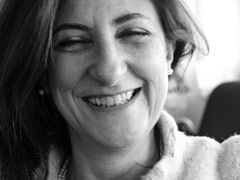Interview with Professor Raffaella Ocone

Professor Raffaella Ocone
Professor Ocone has held the Chair of Chemical Engineering in the School of Engineering and Physical Sciences at Heriot-Watt University since 1999 when she became the first female professor of Chemical Engineering in Scotland and the second one in the UK.
With a first degree in Chemical Engineering from her native Italy and MA and PhD in Chemical Engineering from Princeton University, Raffaella is an internationally known researcher in the field of modelling of complex reactive systems. Her work has application in areas ranging from the hydrodynamics of granular materials to the physics of chemical looping combustion to downstream petrochemical processes including thermal and catalytic crackers and hydrodesulphurisation plants. Most recently she has spent six months on secondment at Petroineos Refinery in Grangemouth (Scotland) working on the storage and accidental dispersion of sour water.
In 2006 as well as being elected Fellow of the Royal Society of Edinburgh (FRSE), Raffaella was awarded the title of Cavaliere (Knighthood) of the order of Merit of the Italian Republic. In 2013 she was elected Fellow of the Royal Academy of Engineering (FREng). Raffaella features in the latest edition of “Who’s Who” 2015.
What is your favourite virtue?
Honesty. Being honest and fair with others and with oneself. Recognising personal limits and treating people fairly putting aside personal advantages and interests.
What is your favourite vice?
Pride. Being proud of what we are and what we have achieved. Being proud of what we belong to.
What are your favourite qualities in a colleague?
Honesty. Which means that I can trust them.
What is your own best quality?
Honesty. I think I can recognise my own limits and I always try to see the world from a different perspective –simply as if it were somebody else looking at me.
What is your key competence?
A good understanding of human psychology. I have been able to achieve much more by understanding the human nature than by applying rules blindly. Followed by chemical engineering principles.
What do you most appreciate about academia?
Teaching undergraduates. The pleasure to introduce them to the vagaries of chemical engineering and to turn them into real engineers. Research can be done anywhere; academia would not exist without scholars and students (unfortunately there are less and less of the former; luckily more and more of the latter in chemical engineering).
What is your main fault?
To be over blunt and speak my mind. This does not always go down well with people who do not possess the virtues and vices that I value most.
What is the best part of your career so far?
Becoming a fellow of the Royal Academy of Engineering – the greatest accolade for an engineer. Recognition from my peer engineers.
What is your idea of happiness?
Having infinite time to read all the books I like, whilst the Quartetto Italiano plays Beethoven String Quartet no. 131.
What is your idea of misery?
Being surrounded by ignorance and incompetence - which makes the world dangerous. Charlatans masked as saviours - which makes the world inflated.
What is the country in which you would most like to live?
Scotland at the time of the Enlightenment; Italy at the time of Renaissance.
Who is the person whose thinking influences you the most?
Currently my philosopher brother –the most brilliant and impractical person that I have met in my life; we complement each other very well. Followed by my previous supervisor, mentor and friend, the late Gianni Astarita; Gianni taught me the “philosophy” of chemical engineering and to be an honest and kind professional. Professionally, I am what I am thanks to Gianni.
Who is the person you most admire (can be fictional or real, current or historical)?
James Clerk Maxwell and Leonardo da Vinci. Maxwell, the perfect scientist; surely influenced by the Scottish Enlightenment although he lived later and died too young. Leonardo, the perfect synthesis between the engineer, the humanist and the artist: a true product of the Italian Renaissance.
What is the natural talent you wish you’d been born with?
Perfect pitch. Being able to play music with no effort.
What is your motto or words to live by?
“Adda’ passa’ ‘a nuttata”. Neapolitan words meaning: “the night will end eventually” …and the light will come at the end of the tunnel.